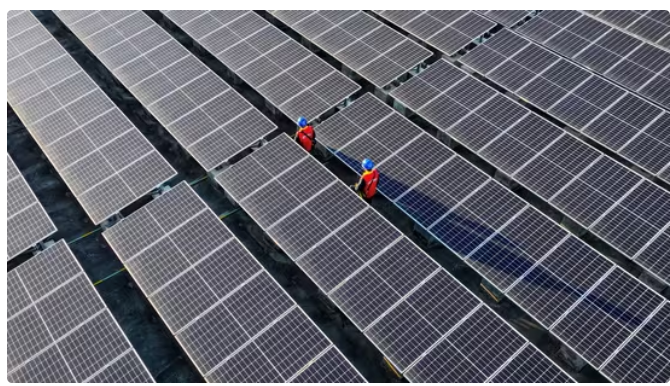

China's rapid expansion in solar panel manufacturing has been a catalyst for the global clean-energy transition. On one hand, the nation's industrial prowess has dramatically lowered the costs of solar panels, making renewable energy more accessible worldwide. This positive aspect of China's expansion should not be overlooked, as it has brought us closer to a sustainable future. However, this same expansion has led to a significant overcapacity issue, sparking concerns among international trade partners.

The United States, the European Union, and their allies are now voicing serious concerns over the glut of solar panels produced by Chinese manufacturers. This surplus has disrupted global markets and prompted these nations to call on Beijing to address the overproduction problem. The calls for intervention raise the spectre of a potential trade war, which could have far-reaching consequences for international relations and the global economy.
China's role in the solar panel market cannot be overstated. The country has invested heavily in renewable energy technologies, positioning itself as a leader in the fight against climate change. However, the resulting overcapacity has created an imbalance, driving down prices to unsustainable levels for many manufacturers outside of China. This has led to accusations of market distortion and unfair trade practices, further straining international relations.
Beijing now faces a critical juncture. The international community is watching closely to see how China will respond to these calls for restraint. Addressing the overcapacity issue is not just about adjusting production levels; it's about maintaining fair competition and fostering a balanced global market. Failure to do so could escalate tensions, leading to retaliatory measures and a potential trade war that would benefit no one.
As nations strive to transition to cleaner energy sources, the need for cooperation and fair-trade practices has never been more pressing. China, as a global leader in renewable energy technologies, must work with its partners to find a solution that supports sustainable growth and avoids the pitfalls of overproduction.
China is grappling with an overproduction issue following its rapid expansion in solar energy, a major component of the country's "new three" economic drivers. On May 22, Reuters reported that China had installed so many solar panels that they generated excess power beyond the country's storage or transmission capacity.
The overcapacity has had a profound impact on the solar energy sector, leading Chinese authorities to reduce price support, as reported by Reuters. This, in turn, has resulted in a significant decrease in the number of solar panel installations.
According to official data, in the first quarter of 2024, China continued to install solar panels at a fast pace, with the installation rate increasing by more than a third compared to the previous year. However, this growth was much slower than the 154 per cent surge observed in the same quarter of 2023.
As of March 2024, China, the world's largest solar energy market, had installed 660 gigawatts of capacity. In comparison, the US ended 2023 with 179 gigawatts, enough to power 33 million American homes.
Chinese manufacturers are facing significant challenges due to solar panel overcapacity. In March, Longi Green Energy Technology, the world's leading solar cell manufacturer, announced massive layoffs affecting thousands of workers, citing overcapacity and declining prices.
The issue is so severe that the China Photovoltaic Industry Association has urged increased mergers and acquisitions and restrictions on domestic competition to manage capacity.
As of this month, US President Joe Biden has doubled tariffs on Chinese solar-cell imports from 25 per cent to 50 per cent. China has responded by criticising the Western perspective on industrial overcapacity, with Beijing arguing that such measures are attempts to stifle its economic growth.
Responses








